Last night, urbanites in Hong Kong flocked to Lan Kwai Fong, the nightlife district at the heart of the city for Halloween parties. It was the first outdoor Halloween event since the pandemic.
Owning to the well-thought protection measures and sufficient security capacities by the local police, party-goers had a blast without any concerns about crowds posing a safety risk.
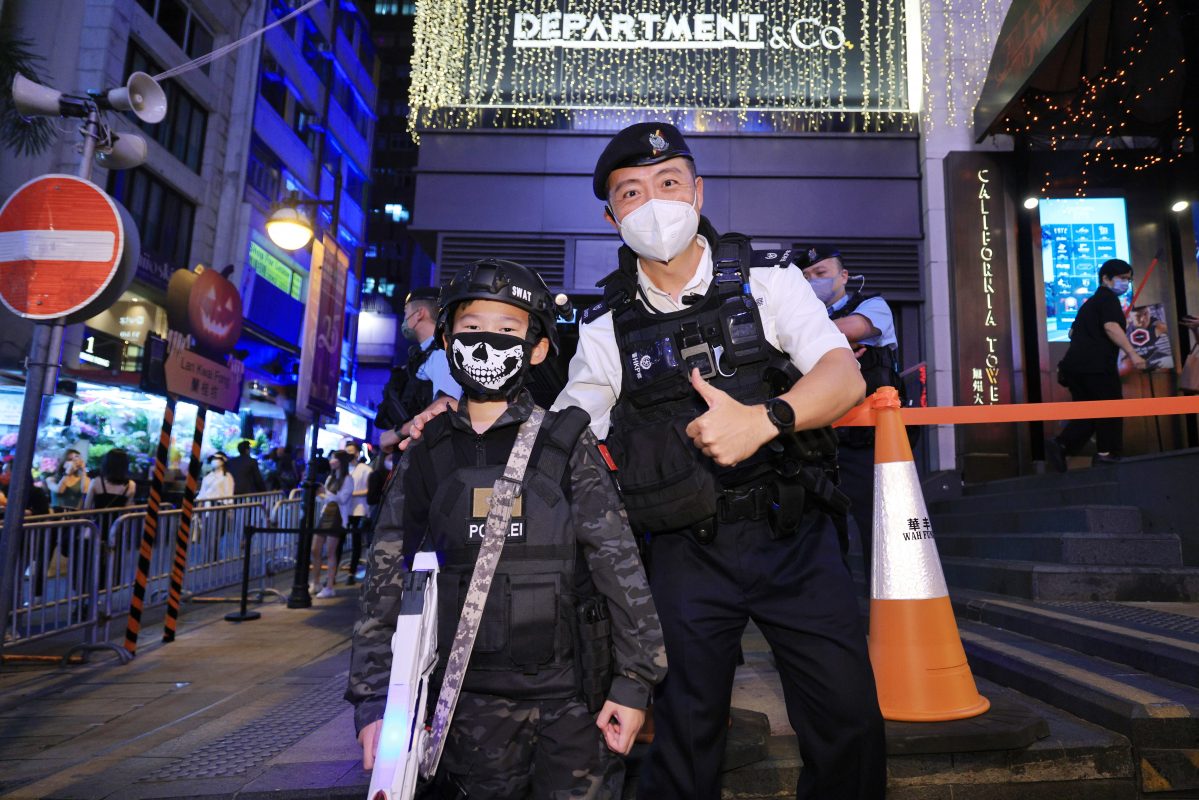
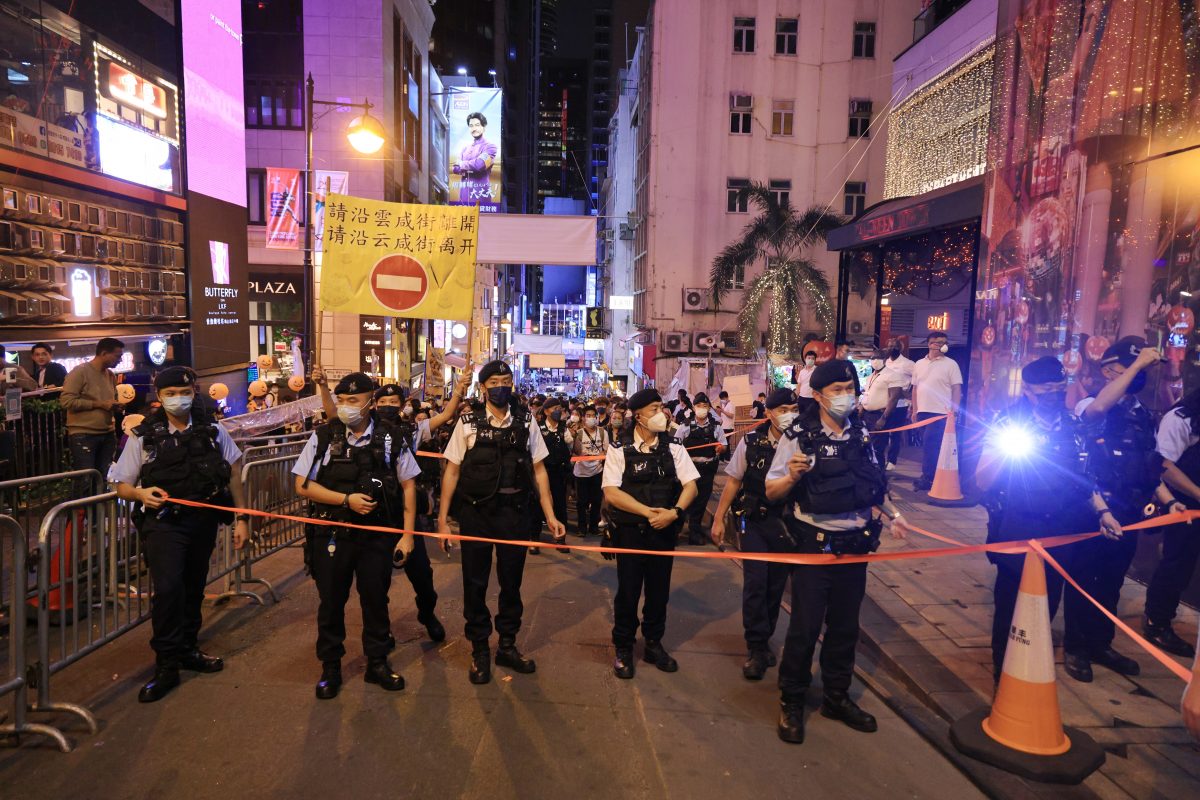
Halloween, falling on the 31st of October every year, doesn’t root in the far city of Hong Kong, but originates from the ancient Celtic festival of Samhain. 2000 years ago, the Celts, mainly in the area that is now Ireland, Scotland, and northern France, would light bonfires and wear costumes to ward off ghosts on that day.
In A.D. 43, when the Roman Empire conquered the majority of the Celtic territory, that traditional celebration of Samhain was also appropriated with Roman festivals. By the 9th century, the influence of Christianity had spread into Celtic lands. Slowly, Christianity was blended with the older Celtic rites.
Later in A.D. 1000, All Soul’s Day was established to honor the death of saints and martyrs. More importantly, it was to replace the Celtic superstitious festival with a Christian-sanctioned holiday.
It is apparent that this imported holiday has little cultural relevance for most Hong Kong residents. And folk traditions and Buddhism have already given Chinese culture its own day or days to commemorate the dead. For instance, the Hungry Ghost Festival, occurring in the seventh month of the lunar calendar, is the time for many residents and shopkeepers to the streets to burn incense and joss paper offerings for the spirits.
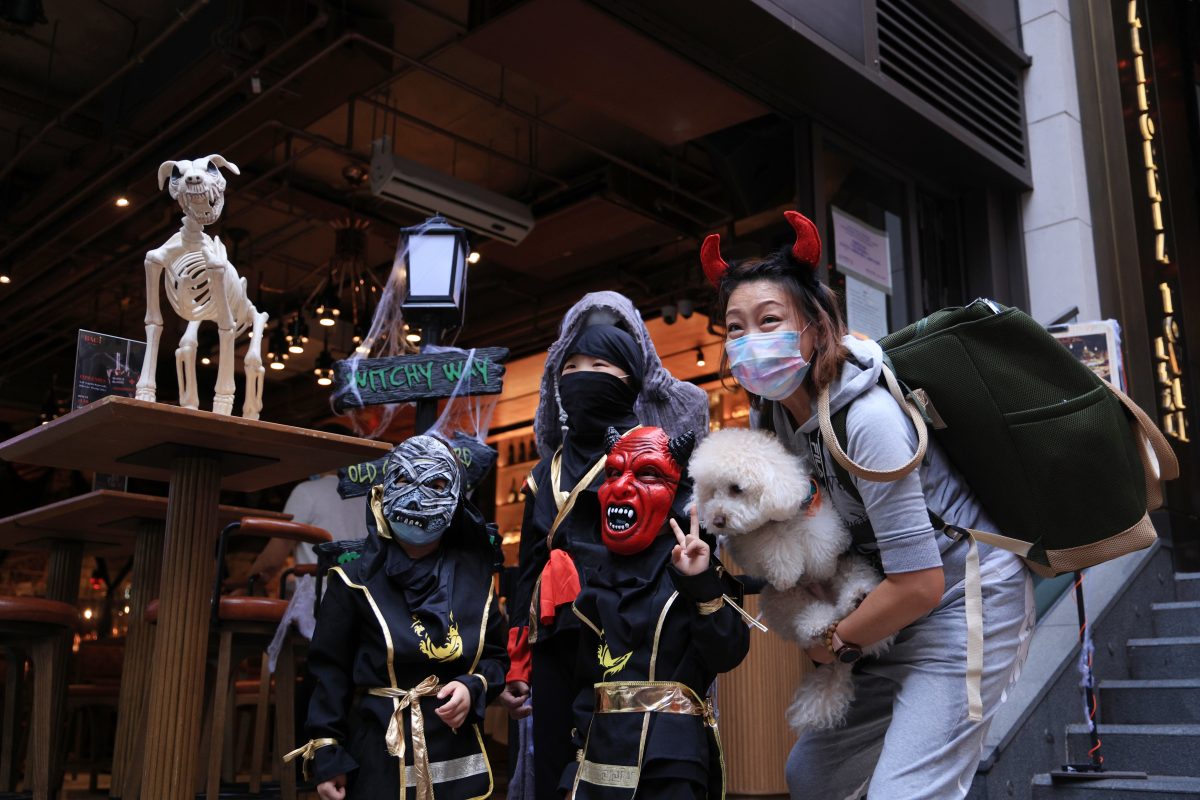
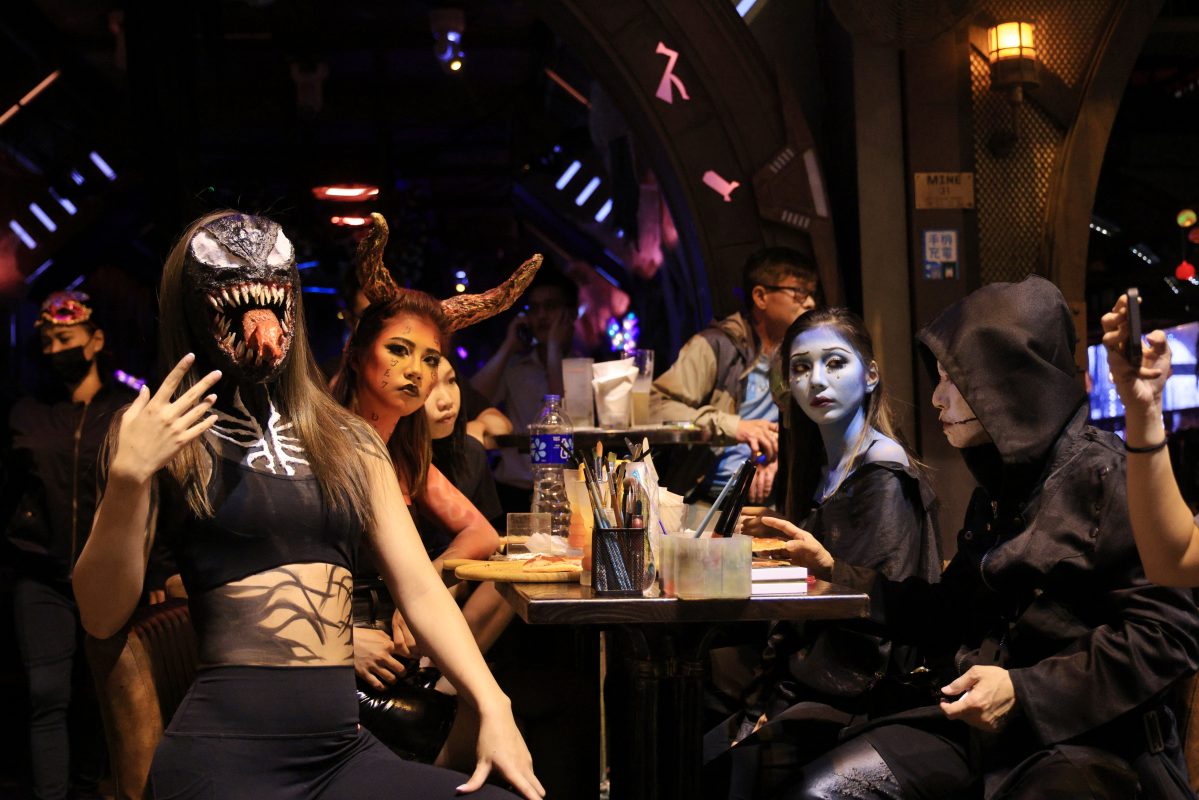
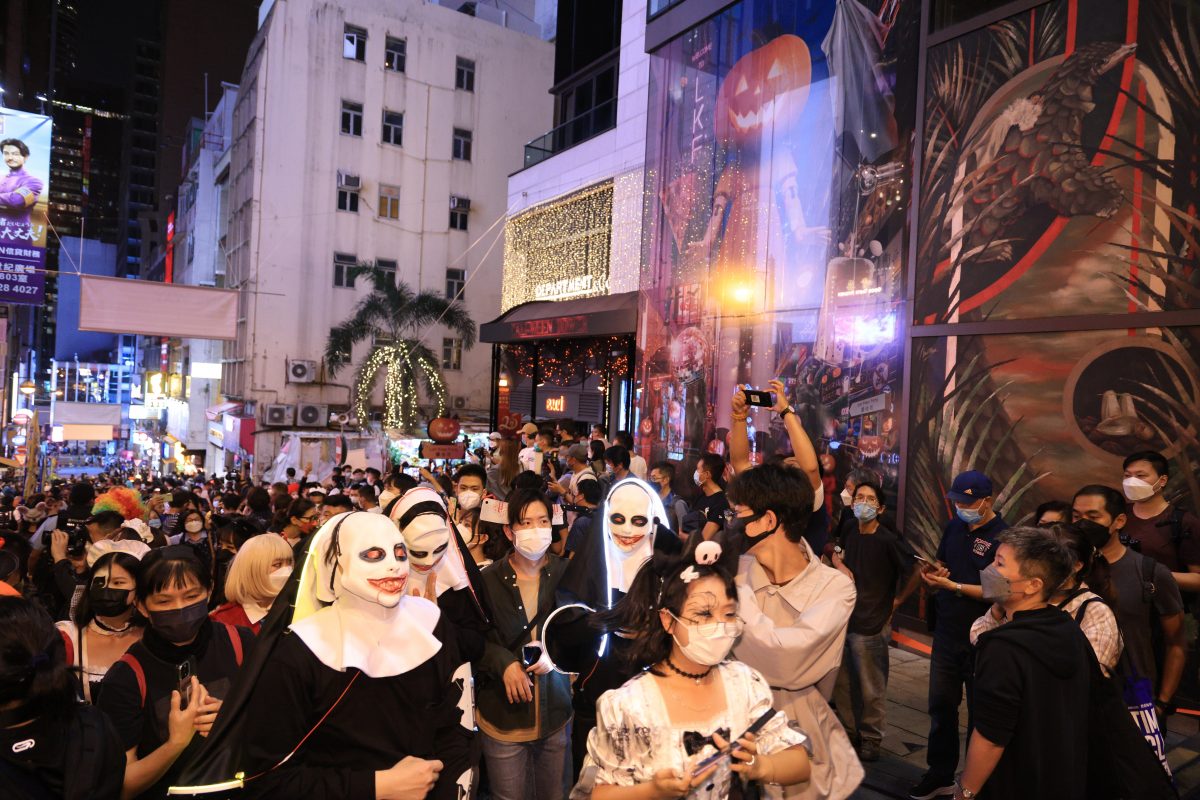
Therefore, Hong Kong Halloween celebrations were non-existential until the early 2000s thanks to successful commercialization through theme parks (e.g., Ocean Park, Disneyland) and mass marketing in shopping malls. This trend was first popularized in 19th century America, where Halloween was deprived of its superstitious and religious meanings, and reduced to a holiday of “play parties” with games, food of the season, and festive costumes.
Asian countries with distinct cultural rituals quickly assimilated the secular, community-centered version of Halloween. So, we could see young and old all dressing up and embracing the spooky atmosphere in Hong Kong. And naturally, Lan Kwai Fong, known for its over-the-top, wildest costume parties, is undeniably the best place to hold the festival.
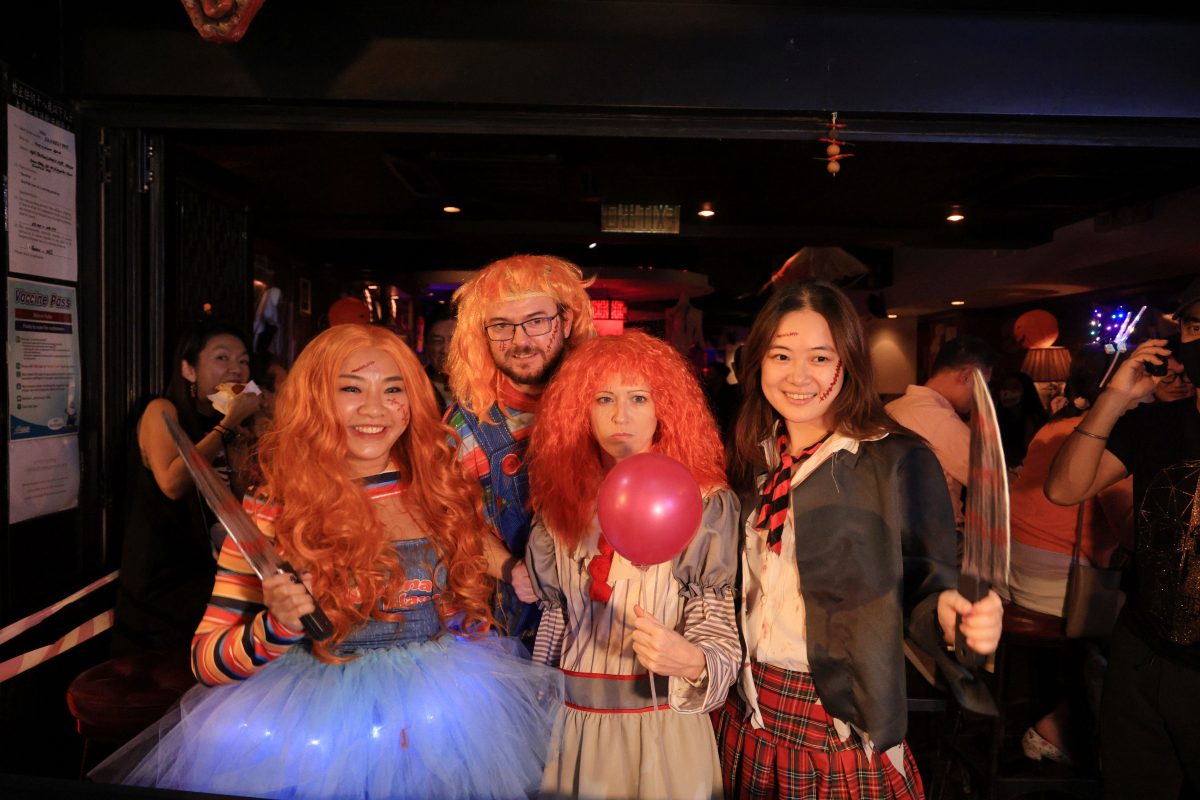
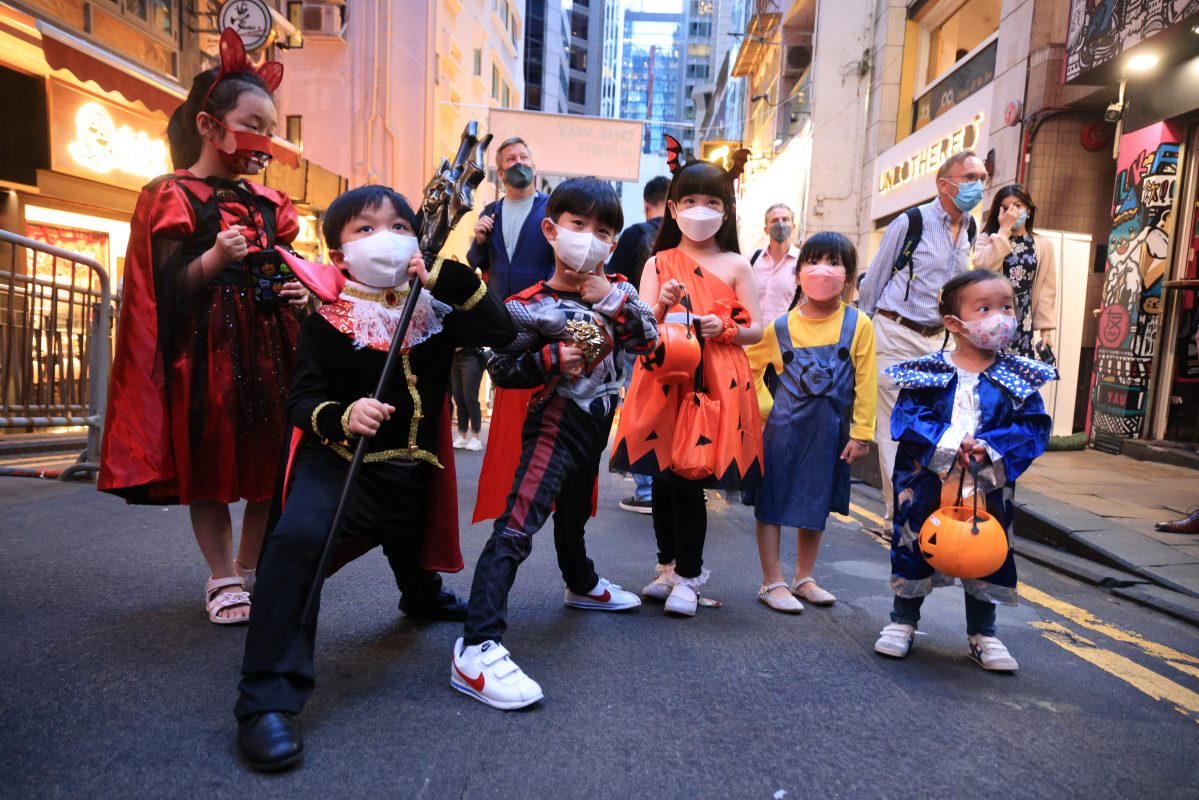
Halloween is a special occasion for Hong Kongers. Not only this shows citizens’ openness to different cultures, but also the city’s ambition to reconnect with the world through international events.


